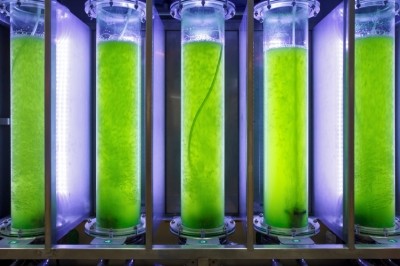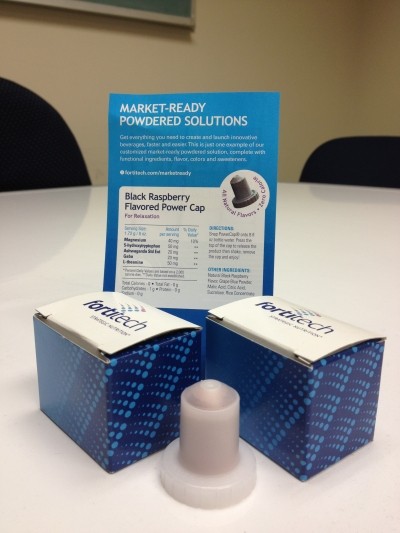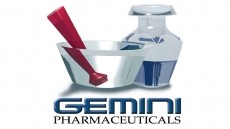Special edition: Vitamins
Sustainability may sway consumer opinion in synthetic/natural vitamins

Despite increasing demand for natural vitamins, natural vitamins for use in supplements are relatively difficult to get, and the natural source is in short supply, said Ram Chaudhari, PhD, chief scientific officer for Fortitech.
And so we turn to the sustainability of synthetic – or nature identical – vitamins. There represents a “huge opportunity” for synthesizing vitamins either chemically or via fermentation, said Michael McBurney, PhD, head of scientific affairs for DSM Nutritional Products, and the issue of sustainability is spurring a “great deal of innovation”.
“If you think about vitamin C, do we have enough citrus groves to feed 7 billion people? We do need to continue to synthesize vitamin C,” he said.
Demand is also set to increase, according to Euromonitor, with a predicted growth in global sales for vitamins from about $27.7bn (€20.5bn) this year to a whopping $34.5bn (€25.5bn) by 2015.
The sustainability issue is “intriguing” said Cara Welch, PhD, VP of scientific & regulatory affairs for the Natural Products Association (NPA), and she wondered when sustainability would play a larger role in the dialogue on natural/synthetic vitamins.
Dr Chaudhari confirmed that more and more of his company’s clients are asking about natural because consumers think “natural is always great, but the sustainability question shows that’s not always so”.
‘False discussion’
Whether the sustainability issue will soften some consumer perceptions over ‘synthetic’ vitamins remains to be seen, but for DSM’s Dr McBurney, the “natural versus synthetic is a false discussion from a scientific perspective because the vitamin forms can be chemically identical regardless of whether it is synthesized or obtained from natural sources”.
“Consumers have beliefs regarding natural and organic, and there is a lot of emotion around this issue, but synthetic vitamins are identical to natural ones.”
Bioavailability
Questions about bioavailability are more important for minerals than for vitamins, he added, where the form of the mineral dramatically affects bioavailability.
That’s not to say that some differences do not exist depending on the vitamin in question, according to Paul Coates, PhD, director of the Office of Dietary Supplements (ODS) at the National Institutes of Health (NIH).
“In most cases, there are insignificant differences between the bioavailability of the natural and synthetic forms of a vitamin,” said Dr Coates. “For example, vitamin C dietary supplements typically contain vitamin C in the form of ascorbic acid which has equivalent bioavailability to that of naturally occurring ascorbic acid in foods, such as orange juice and broccoli.”
There are some cases where the synthetic forms are more easily absorbed than the natural forms present in foods, he added, with synthetic vitamin B12 more easily absorbed by some people – especially older adults – than the vitamin B12 that is naturally present in food.
Folic acid/folate
Folic acid is another one: It is often described as the ‘bioavailable synthetic form of folate’, and is used to fortify grain products in over 50 countries.
The compound has enjoyed incredible success in reducing the incidence of neural tube defects in infants. Indeed, the US Centers for Disease Control and Prevention (CDC) recently listed NTD prevention through flour fortification amongst its list of 10 great health achievements in the US for the last decade.
However, Dr Coates explained that folate/folic acid has varying absorption rates depending upon the form of the vitamin and how it is taken.
“The absorption of folate found naturally in foods is only about 50%. If folic acid is taken as a dietary supplement on an empty stomach, it is nearly 100% absorbed, whereas if it is taken as a dietary supplement with food or as a fortified food, the absorption is about 85%.
“As a result, the contributions of folate and folic acid toward intake recommendations (which are based on dietary folate equivalents (DFE)) vary depending upon the source of the nutrient. This could be viewed as differences in bioavailability or biological activity, but the underlying factor is really differences in absorption.”
Bruce Ames, PhD, from the Children's Hospital Oakland Research Institute (CHORI), explained that folic acid is the oxidized form and must be reduced in the body to the natural tetrahydrofolate form, which is what you get from eating greens.
"The problem is that people vary quite a bit on how efficiently they do the reduction so I think it is probably better to use reduced forms, such as methyltetrahydrofolate or folinic acid, in pills to get away from this uncertainty, even though they are a less stable than folic acid to oxidation."
‘Unique’ vitamin E
Vitamin E is described as “unique” by Dr Coates, because “in that naturally occurring alpha-tocopherol exists in one stereoisomeric form, whereas synthetically produced alpha-tocopherol contains equal amounts of its eight possible stereoisomers.
“Serum and tissues maintain only four of these stereoisomers; thus, a given amount of synthetic alpha-tocopherol is only half as active as the same amount (by weight in mg) of the natural form. People need approximately 50% more International Units (IU) of synthetic alpha-tocopherol from dietary supplements and fortified foods to obtain the same amount of the nutrient as from the natural form.”
Dr Ames added that he suspects it is 'better to use a mixture of natural tocopherols, rather than the synthetic alpha.
"We published some work showing that gamma-tocopherol has very different properties than alpha-toc and that the body may need both."
Differences not related to natural/synthetic
Moving beyond the natural/synthetic debate, Dr Coates noted that certain vitamins do have varying biological activity depending upon the form or source of the nutrient, “though the differences are unrelated to whether the vitamin is ‘synthetic’ or ‘natural’.
“Vitamin A, for example, has varying biological activities depending upon whether it is in the form of preformed vitamin A (such as retinol) or provitamin A carotenoids (such as beta-carotene).
“Intake recommendations for vitamin A are expressed in retinol activity equivalents to account for these varying biological activities”.
Context
David Heber, MD, PhD, director of the UCLA Center for Human Nutrition, said that the synthetic vs natural discussion should not detract from the real issue, which is to try to get nutrients from food.
“Take vitamin C,” he said, “natural and synthetic vitamin C is the same thing, but if you get your vitamin C from an orange then you’re also getting citrus flavonoids."
Multivitamins – the majority of which are formulated with synthetic vitamins – are fine, added Dr Heber, when used for what they are designed for – “as back-up to a healthy diet and not as a substitute”.
















